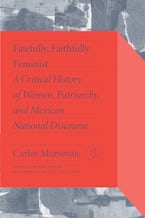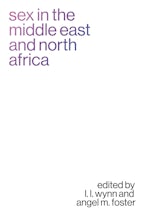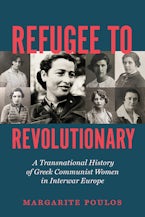- Home
- Battering States

Battering States
The Politics of Domestic Violence in Israel
Battering States explores the most personal part of people's lives as they intersect with a uniquely complex state system. The book examines how statecraft shapes domestic violence: how a state defines itself and determines what counts as a family; how a state establishes sovereignty and defends its borders; and how a state organizes its legal system and forges its economy. The ethnography includes stories from people, places, and perspectives not commonly incorporated in domestic violence studies, and, in doing so, reveals the transformation of intimate partner violence from a predictable form of marital trouble to a publicly recognized social problem.
The politics of domestic violence create novel entry points to understanding how, although women may be vulnerable to gender-based violence, they do not necessarily share the same kind of belonging to the state. This means that markers of identity and power, such as gender, nationality, ethnicity, religion and religiosity, and socio-economic and geographic location, matter when it comes to safety and pathways to justice.
The study centers on Israel, where a number of factors bring connections between the cultural politics of the state and domestic violence into stark relief: the presence of a contentious multinational and multiethnic population; competing and overlapping sets of religious and civil laws; a growing gap between the wealthy and the poor; and the dominant presence of a security state in people's everyday lives. The exact combination of these factors is unique to Israel, but they are typical of states with a diverse population in a time of globalization. In this way, the example of Israel offers insights wherever the political and personal impinge on one another.
The politics of domestic violence create novel entry points to understanding how, although women may be vulnerable to gender-based violence, they do not necessarily share the same kind of belonging to the state. This means that markers of identity and power, such as gender, nationality, ethnicity, religion and religiosity, and socio-economic and geographic location, matter when it comes to safety and pathways to justice.
The study centers on Israel, where a number of factors bring connections between the cultural politics of the state and domestic violence into stark relief: the presence of a contentious multinational and multiethnic population; competing and overlapping sets of religious and civil laws; a growing gap between the wealthy and the poor; and the dominant presence of a security state in people's everyday lives. The exact combination of these factors is unique to Israel, but they are typical of states with a diverse population in a time of globalization. In this way, the example of Israel offers insights wherever the political and personal impinge on one another.
Madelaine Adelman is Associate Professor of Justice and Social Inquiry in the School of Social Transformation at Arizona State University. Past-president of the Association for Political & Legal Anthropology (APLA), she is coeditor (with Miriam Elman) of Jerusalem: Conflict and Cooperation in a Contested State.
"There is no questioning the thoroughness and commitment of the author to this important issue. Her treatment is methodologically rich and informed by extensive evidentiary depth. It will take a reader down to the street level, behind the scenes and into the emotional turmoil and struggles, documenting meticulously all of the relevant actors, from victims to service care workers to advocates—a holistic view rarely afforded on this issue. . . . A rare, in-depth, and comprehensive view into an issue that is typically beyond taboo in this important region. . . . Essential."
—Choice
"Because US coverage of the Palestinian-Israeli conflict rarely includes any mention of intimate violence, and even more rarely of Palestinian or Druze women's experiences and suffering as mothers and wives, Adelman's careful and multilayered examination of women's experiences of state and family will contribute to a greater understanding of multiple forms of violence in the area--violence that is not limited to the political violence prevalent in media coverage."
—M. Cristina Alcalde, author of The Woman in the Violence: Gender, Poverty, and Resistance in Peru
"Battering States is methodologically impressive, building on long-term ethnographic research in a variety of settings, interviews with victims, service care workers, advocates, and representatives of the state, as well as an impressive array of historical, legal, and other international and local texts."
—Mindie Lazarus-Black, author of Everyday Harm: Domestic Violence, Court Rites, and Cultures of Reconciliation
"Battering States offers a unique bottom-up documentation of the multiple articulations of domestic and state violence. Set in the iconic 'security' theatre of Israel-Palestine, Adelman's ethnography reveals the practical meanings of insecurity for women from different ethnic, class, and national backgrounds. Yet alongside women's vulnerabilities, it also records local women's courage in politicizing domestic violence and their agency in combining peace and feminist activism, within and across the two national communities."
—Amalia Sa'ar, author of Economic Citizenship: Neoliberal Paradoxes of Empowerment











